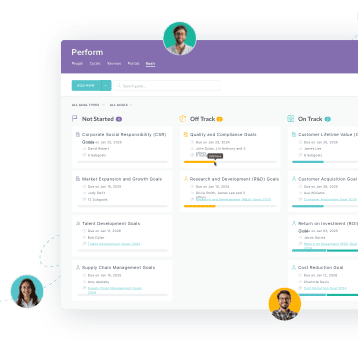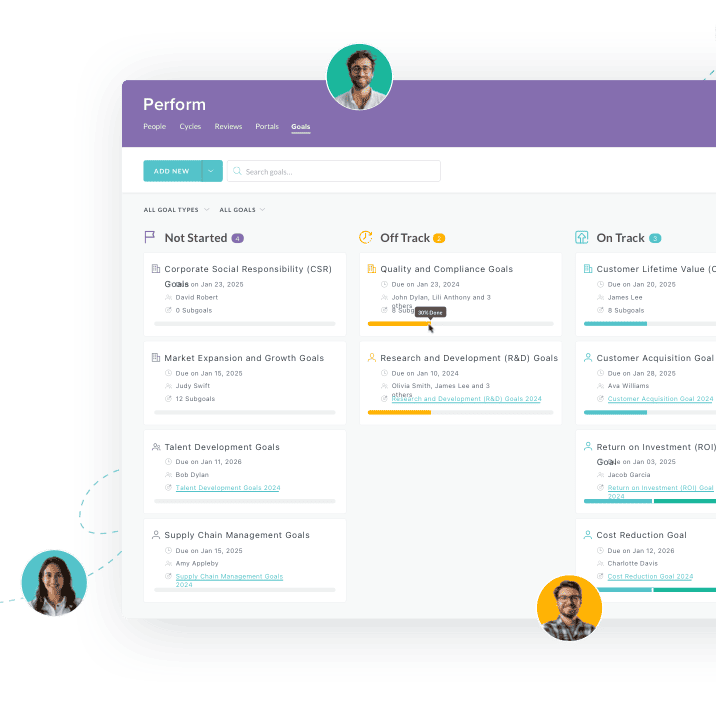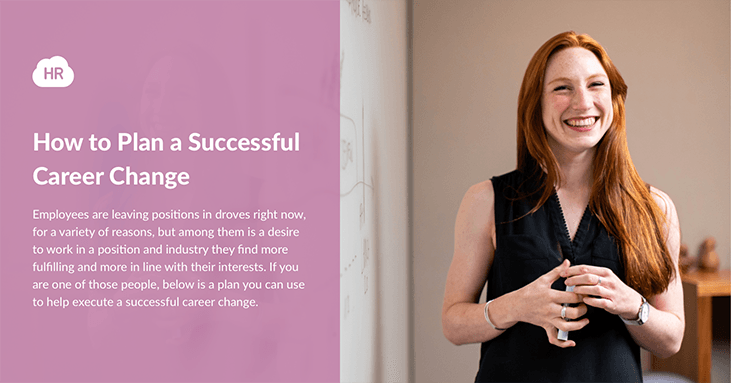

 Cut onboarding time
by 60%—here's the
Ultimate Checklist
that helped do it.
Cut onboarding time
by 60%—here's the
Ultimate Checklist
that helped do it.

Over the past few years, many professionals have undergone serious career self-reflection. The rapid changes in how and where we work—accelerated by the pandemic and solidified by the rise of hybrid and flexible work—have prompted people to rethink their long-term goals, retirement plans, and work-life balance. As a result, more employees are leaving roles that no longer align with their values or interests, choosing instead to pursue careers that feel more meaningful and sustainable.
If you're considering a career shift in 2025, here's a practical plan to help you make the move successfully—while protecting your mental health and supporting your professional growth.
Be Honest With Yourself About Your Current Job
Leaving an established career to start a new one is not a decision to take lightly, which is why it's important to be honest about your job satisfaction and the reasons for any dissatisfaction. Keep track of how you react to your job, the people you work with, the industry you're in, and your daily tasks and workflows. After keeping a journal for a while, you can start to search for patterns. What do you enjoy and dislike about your current work environment? Are your grievances with the content of your work, the organizational values of your company, or the people you work with? Is your workplace potentially toxic, affecting your mental health and overall well-being?
While you're at it, there are some things you can do at your current work to help you get ready to move on when the time comes. For one, start tailoring your resume to your industry of choice. There are plenty of templates online to use for almost any niche or industry, as well as advice on how to go about adapting your previous work and educational experience for the job requirements you will be asked to satisfy in your new professional home.
Be Honest About Your Skills and Interests
The key to a successful career change is honesty. This is a decision that could affect the rest of your life, for better or worse, so you need to start by taking a hard look at your passions, values, and abilities. Examine your previous positions, volunteer work, projects, and professions to find out what activities and skills you prefer. Check to see if your fundamental values and talents are being met in your current job. You can utilize free online tools to help you evaluate your career options and potential paths for career progression.
It's also important that you're honest about any limitations that will make it difficult for you to land a job in a new company or industry. Is there a technical skills gap you will have to overcome through skill acquisition? How big is it, and what are the time and financial costs involved? Does the industry in which you would like to work exist in the city, region, or even country you currently live in? If not, are you willing to move away from friends and family to chase your dreams, and if you are, what effects will this have on your significant other and/or children? Additionally, consider factors like the possibility of remote work or flexible scheduling in your new career, as these can significantly impact your work-life balance and job satisfaction.


Build a Network in Your New Industry
In addition to learning everything you can about your desired industry prior to starting your job search in earnest, you should try to combine this with a lot of networking. Your college alumni professional network is a wonderful source of contacts for informational interviews and chats. LinkedIn is another excellent platform for connecting with people in specific professional categories. You can increase your response rate from your cold reach-outs by letting people know upfront that you are just asking questions, not fishing for real interviews or "ins" (yet).
Find Ways to Job Shadow 
One of the best things you can do before deciding to change careers is to arrange for a job shadowing opportunity or two. People always have preconceived notions about things they aren't familiar with, and you may have even done a fair amount of romanticization of your potential new industry due to unhappiness in your current role. That is only natural, but it is wise to spend at least a few hours (cumulatively) and, ideally, a few days shadowing people who work in the industry you are interested in joining. This can give you valuable insights into the day-to-day work environment and help you make more informed career decisions.
Upskill Prior to Switching Jobs
The worst position to be in during a career change is grappling with the realization that you don't have the technical skills required to get your foot in the door. That doesn't mean your dreams are shot; it may just require you to spend some time and money on skill acquisition to get yourself up to speed so employers will take you seriously. You can find out what people are looking for either by talking to the people making the hiring decisions directly, you can ask in industry and niche-related forums, and/or you can peruse job listings to see what the descriptions are asking for. This proactive approach to professional development can significantly boost your chances of success in your new career.
Consider a Lateral Move
As previously mentioned, career changes are about total honesty with yourself. With that said, perhaps a completely different job within your current industry might allow you to put your sector skills to good use. Importantly, it might also allow you to satisfy your need for change while softening your landing.
Oftentimes, it's the routine or monotony of one's current role that is the issue, not necessarily the industry itself. There might be opportunities for you to use your skills in completely new ways, on completely new teams, and perhaps even in an entirely new location without having to upend your professional life completely. This could provide a path for career advancement within your current field while addressing your desire for change.
Conclusion
Changing careers can either be one of the best, most liberating decisions of your life or something you immediately regret. The deciding factor is your preparation and how honest and self-critical you are willing to be with yourself while making the switch. Keep the above recommendations and steps in mind, and be sure that any career change is one that is made with a lot of forethought, self-knowledge, and, importantly, the conviction that you are doing the right thing. Whether you're looking to escape a toxic workplace, seeking better work-from-home opportunities, or simply aiming for greater job satisfaction, a well-planned career change can lead to significant improvements in both your professional life and mental health.
 Discover how our HR solutions streamline onboarding, boost employee engagement, and simplify HR management
Discover how our HR solutions streamline onboarding, boost employee engagement, and simplify HR management
Keep Reading
Why Healthcare Organizations Choose HR Cloud Over Alternatives
What is the Best Healthcare HR Software for Medical Organizations?
The Complete Guide to Remote Work Policy Compliance: Navigating Multi-State Tax, Legal, and Security Requirements in 2026
With 22.9% of US employees working remotely as of Q1 2024—up from 19.6% the previous year
Enterprise HRIS Implementation: Rippling vs HR Cloud Integration Capabilities and Deployment Success
Enterprise HR Software Implementation Comparison
Like What You Hear?
We'd love to chat with you more about how HR Cloud® can support your business's HR needs. Book Your Free Demo

Build a Culture of Recognition. Boost Engagement. Guaranteed.
Workmates empowers employees to stay informed, connected, and appreciated—whether they’re on the front line, in the office, or remote. Recognition drives 12x higher engagement.Trusted by industry leaders in every sector




Cut Onboarding Costs by 60%.
Take the confusion and follow-ups out of onboarding with automated workflows, digital forms, and structured portals—so new hires ramp faster 3X quicker.Trusted by industry leaders in every sector





